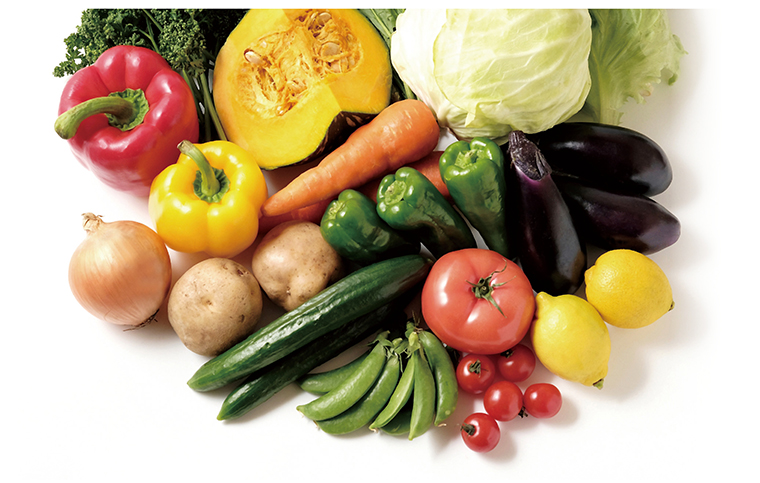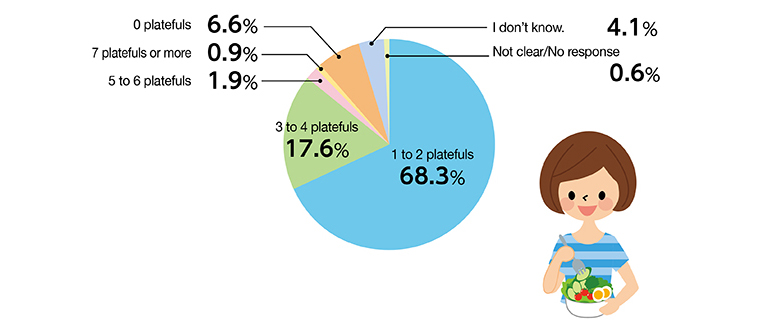 |
Eat Your Vegetables!
How much vegetables do you eat per day?
According to a survey Shinagawa City conducted in FY2017, only 2.8% of city residents consumed the minimum daily requirement of 350 grams (or about five platefuls) of vegetables. About 68.3% of the population ate just one or two platefuls per day, 17.6% ate three to four, and 6.6% ate none. That means 92.5% of the population of Shinagawa City did not eat enough vegetables.
To eliminate this lack of vegetables, why not start by adding one plate of veggies to your daily diet?
Inquiries: Public Hygiene Section, (Tel: 03-5742-7124, Fax: 03-5742-9104)
|
| How many plates of vegetables do you eat per day? |
Note: As a guideline, “one plate” here equals about 70 grams.

Reference: Shinagawa City Health Awareness Survey (FY2017) |
| Why Do You Need Vegetables? |
Vegetables have a lot of nutrients for making our bodies strong and providing energy to get things done.
Vegetables contain a lot of potassium, for example, which helps the body excrete any excessive sodium in the body and control rises in blood pressure. By eating foods with fiber, you also gain a feeling of fullness, which keeps you from overeating. Other benefits include keeping blood sugar from spiking and preventing constipation. Furthermore, the vitamins in vegetables help keep the body in good condition.
Eating plenty of vegetables helps you maintain good health.
| What amount of vegetables do I have to eat per day? |
The recommended daily amount of vegetables is 350 grams. If one plateful is 70 grams, this means you need to eat five platefuls.
What does 70 grams equal here? Half a tomato or carrot, a quarter of an onion, or one or two cabbage leaves.
However, eating 350 grams of vegetables but only consuming one type of vegetable leads to an imbalanced diet. To prevent this imbalance, you need to consume a variety of vegetables. For example, 120 grams of dark-colored vegetables such as carrots and spinach (green and orange/yellow vegetables), and 230 grams of light-colored vegetables such as cabbage, onions and daikon (light-colored vegetables).
Three Keys to Eating Plenty of Vegetables |
1. Include vegetables in every meal
It is recommended to prepare vegetable dishes and boiled vegetables in advance. We also recommend using cut vegetables and frozen vegetables that are available at convenience stores and elsewhere. |
2. Add vegetables as they are
Vegetables that can be eaten as they are, such as mini-tomatoes and cucumbers, are easy to
prepare and add color to
your meals. |
3. When you eat out, be sure to add a vegetable dish from the menu
When you eat out, add a salad or select a dish from the menu that has plenty of vegetables. |
|



